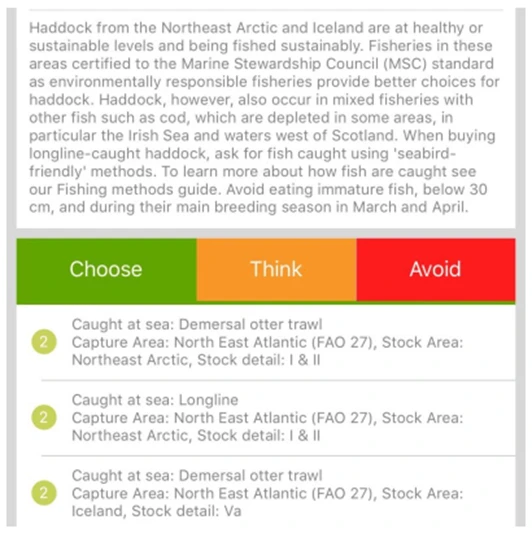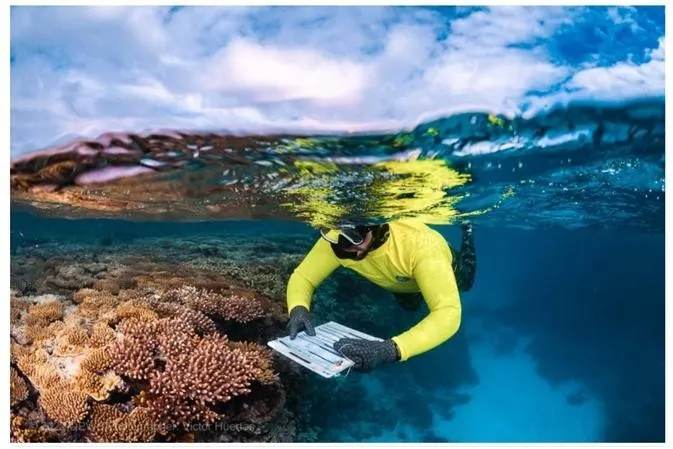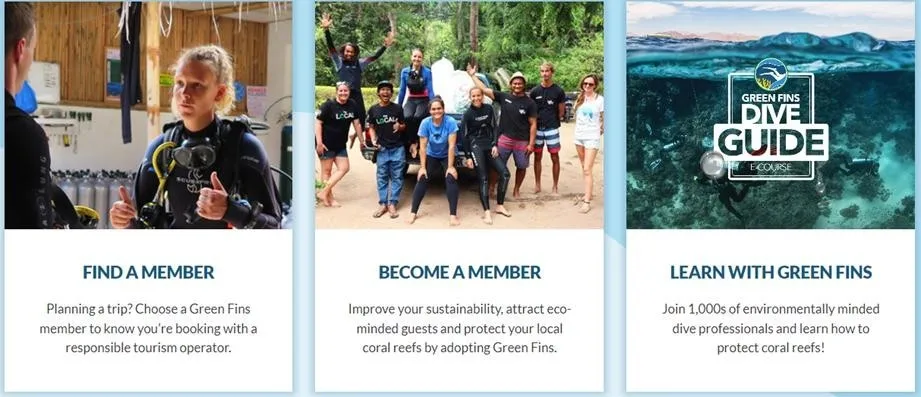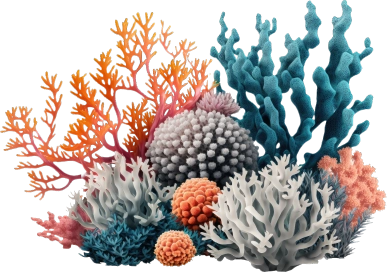Today, climate change, overfishing, pollution, and other anthropogenic factors threaten our oceans. For all these reasons, the need to implement conservation efforts is increasingly evident and growing. There are countless ways to contribute to conserving these vital ecosystems, from reducing plastic consumption, participating in beach cleanups, and consuming fish from certified sustainable sources.
However, there is another way in which ordinary citizens can play an important role in the discoveries, experiments, collection and analysis of scientific data, called “citizen science.“
But what is citizen science? Citizen science is considered an activity that engages the public in scientific research and therefore has the potential to unite three important pillars, science, policymakers and society.
Through citizen science, everyone can participate in the different stages of the scientific process, from the design of research questions to the collection of data, as well as the interpretation, analysis, publication and dissemination of results (eu-citizen, 2023). In general, citizen science projects cover a variety of topics, whether environmental or general research.
There are multiple benefits since participation in citizen science is considered a win-win, i.e. the citizen scientist can actively pursue his or her personal values and be part of a research community pursuing the same goals, while the professional scientist can obtain more data than he or she would otherwise. This leads to greater precision in their measurements and enriches their research at the same time (Horizon The EU Research & Innovation Magazine).
The adoption of citizen science can be attributed to two important trends, the first involves the use of online tools and mobile devices to record, store, process and transmit data, and the second is due to a growing social expectation that ordinary people can and should have the right to science, which had been considered the exclusive domain of scientists (Grigoletto, Antunes de Oliveira, & Caradi Momesso, 2023).
Thus, as the practice of citizen science consolidates and is adopted by ordinary citizens, new ways of communicating are emerging. One of the best-known platforms in Europe and the United States is called EU-Citizen.Science:
This online platform is used in order to share knowledge, tools, training and resources for citizen science by the community and for the community (eu-citizen, 2023).
There are other platforms also focused on research, conservation and education. One of them is called eBird, whose objective is for observers from around the world to submit complete lists of birds, and also focuses on research, monitoring and conservation planning with actions focused on protecting the habitats of these species. (Bonney, 2021).
Empowering Waves: Uniting Communities for Ocean Conservation
Now, in relation to ocean conservation and citizen science, the latter allows communities to interact with the ocean and become informed about issues including marine plastic pollution, species conservation, responsible and sustainable consumption of fish, among others.
One of the easiest ways to get involved and become a marine citizen scientist is as simple as downloading one of the following ocean conservation mobile apps:
#1 “Good Fish Guide”:
The first is an app created by the Marine Conservation Society tracks the seafood consumed in the UK and advises which fish are the best sustainable options, which fish to avoid and which fish to eat occasionally to limit the pressure on their populations (Marine Megafauna Foundation, 2023).
The application contains hundreds of different seafood species, so you can search and determine the best choice (Marine Megafauna Foundation, 2023). For example, if you are looking for haddock fish, you can find the different fishing methods you should avoid see Figure 1.
If you want to access the Good Fish Guide, go to the link: http://www.goodfishguide.org/

#2 “Eye on the Reef”:
It’s another application used to monitor and evaluate our oceans, specifically Australia’s Great Barrier Reef, which allows anyone visiting this ecosystem, whether a regular hiker, fisherman, marine scientist, or first-time tourist, to record the health of the reef, sightings of marine animals, as well as incidents in order to gather information and understand the bigger picture and inform the public of the management of the Great Barrier Reef’s conservation. (Australian Government-Reef Authority, 2023)
An added value of Eye on the Reef is its free online training and/or learning program, which aims to improve knowledge and understanding of the Great Barrier Reef World Heritage Area, its cultural connections, rich biodiversity, management, and protection, and to inspire people to learn about and recognize its importance in the world. (Australian Government-Reef Authority, 2023)
For more information, go to the following link: https://www2.gbrmpa.gov.au/help/eye-on-the-reef

#3 “Green Fins” Initiative:
In addition to the previously mentioned applications, it is also worth highlighting alliances that have been developed for sustainable coral reef tourism and citizen science; one of them is the union between the Reef-World Foundation in partnership UNEP-United Nations Environment Programme.
Its objective is for members, whether they are dive centers, marine tourism representatives, professionals, or even tourists who wish to dive on their vacations, to help protect and conserve coral reefs by following environmental guidelines that promote a sustainable diving and snorkeling industry. (Green Fins).
You know, the next time you think about diving, look for Green Fins members first, choose the one you like the most, and guarantee a responsible tourism experience. See Figure 3.
For more information, go to the following link. https://greenfins.net/

The Keys to Citizen Science Success
As we have seen, public participation in scientific research is growing, adapting, and evolving every day. A key factor in citizen science focused on ocean conservation is the active and engaged participation of the local community.
The direct connection of citizens with their marine environment creates a valuable link that goes beyond simple data collection. This is why it is important to consider the following aspects:
- Local connection: Citizen science works best when local communities are involved. Nearshore residents often have an intimate knowledge of marine ecology and can provide valuable information based on their experience
- Education and awareness: Effective participation in citizen science requires a basic understanding of ocean issues and the importance of conservation.
- Access to technology: The use of online tools, mobile applications and monitoring devices facilitates citizen participation in data collection.
- Collaboration with experts: Combining scientific knowledge with local expertise and the dedication of citizens can significantly improve the quality and quantity of data collected.
- Adaptable projects: Citizen science projects should be flexible and adaptable to the needs and capabilities of the community. This may include choosing relevant topics, defining data collection methods, and interpreting results.
- Tangible actions: Citizen science that leads to tangible actions and concrete changes in ocean management and conservation reinforces citizens’ sense of purpose and contribution.
Conclusion
Citizen science in the oceans benefits greatly when the active and passionate participation of the local community is recognized and harnessed. Direct citizen involvement contributes not only to the collection of valuable data but also to building a stronger and more sustainable connection between people and the oceans.
At Oceanogami, citizen science is our compass, and the ocean is our infinite laboratory!

